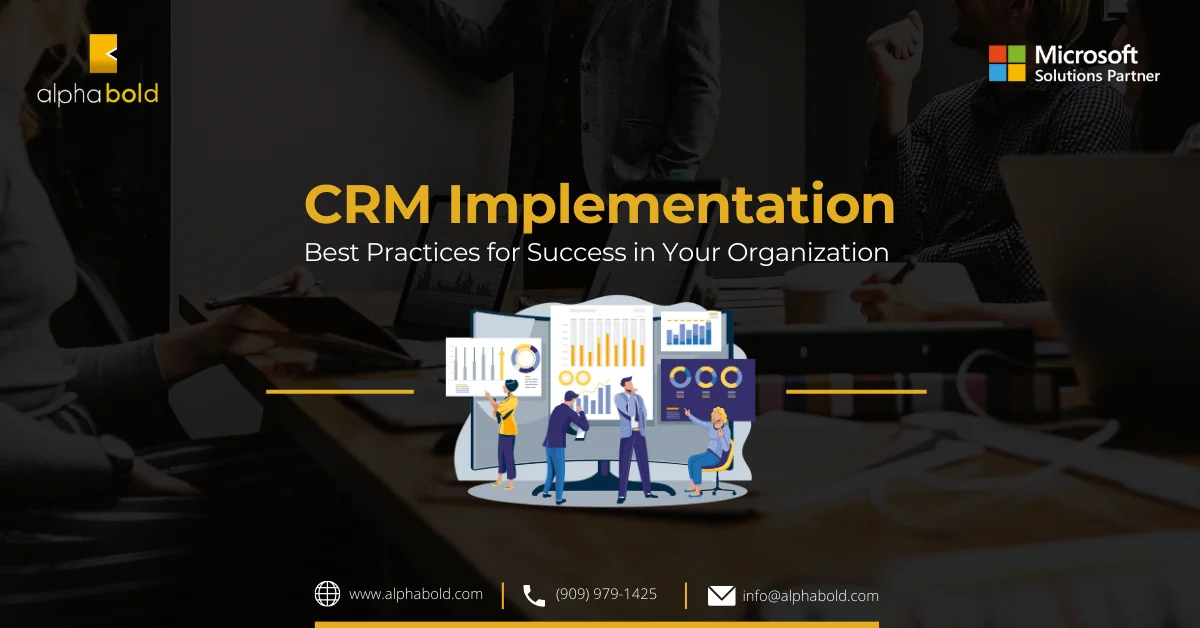Introduction
This blog explores Dynamics 365’s hidden costs—a phenomenon that often slips under the radar but can significantly influence your organization’s financial planning and decision-making process.
For C-level executives considering the adoption of Dynamics 365, the allure of streamlined operations and enhanced customer engagement is compelling. However, making this decision requires a thorough understanding of all associated costs, not just the apparent ones. Hidden costs, lurking beneath the surface of straightforward implementation and licensing fees, pose significant financial and operational challenges. In this blog, we dig deeper into the nuances of Dynamics 365’s hidden costs, exploring everything from unforeseen expenses in customization and integration to often overlooked costs in training and support.
Brief Overview of Dynamics 365
Dynamics 365, a product of Microsoft, is an innovative blend of ERP and CRM solutions innovatively. ERP systems help organizations manage and integrate essential business parts. On the other hand, CRM solutions streamline and improve customer interactions. Integrating these systems into a cohesive platform like Dynamics 365 unifies operations, fostering efficiency and growth.
Moreover, Dynamics 365 is renowned for its versatility and comprehensive suite of applications. It includes modules like Dynamics 365 for Sales, Marketing, Customer Service, Field Service, Finance, and Supply Chain Management. Each module caters to specific business needs, offering functionalities such as sales automation, customer insights, financial tracking, and supply chain optimization. This flexibility enables companies to choose what best fits their unique business processes and goals.
For further insights on Dynamics 365, read: Dynamics 365: A Deep Dive Into Its CRM Capabilities
The Importance of Cost Awareness
In an era where technology drives business transformation, C-level executives face the constant challenge of aligning technological investments with financial prudence. This balance is particularly pertinent in ERP and CRM implementations, such as with Dynamics 365. The allure of enhanced operational efficiency and customer engagement must be weighed against the fiscal realities of such undertakings. It’s not just about the visible costs; hidden expenses also significantly affect these systems’ long-term success and viability. Understanding these costs is not merely a matter of fiscal responsibility; it’s a strategic imperative that impacts every facet of the organization. Here’s why cost awareness is fundamental for C-level executives when considering a solution like Dynamics 365:
- Influence on Decision-Making: Cost management is not just a financial exercise but a critical element influencing C-level decision-making. Understanding the complete financial picture is crucial for ERP/CRM implementations like Dynamics 365. This includes direct expenses, which often have a more immediate impact than projected future revenues. C-level executives must balance the allure of potential profits with the realities of immediate out-of-pocket costs.
- Enhancing Cost Effectiveness: Increased cost-effectiveness is a primary aim of implementing ERP solutions. C-level executives need to know how Dynamics 365 can reduce indirect costs, particularly those arising from inefficiencies in production-level operations. A detailed understanding of these aspects can strengthen the business case for Dynamics 365, highlighting its role in improving overall business efficiency.
- Accurate Budget Projections: Accurate budgeting is essential in any ERP/CRM implementation. Dynamics 365 promises to offer more precise budgeting capabilities compared to legacy systems. For C-level executives, this means the ability to create more detailed and reliable financial projections, which is crucial for confident and informed decision-making. It’s about ensuring the financial resources are optimally allocated for maximum return on investment.
- Improved Financial Reporting: A key advantage of Dynamics 365 is enhanced revenue and expense reporting. Detailed reporting is essential for C-level executives, especially when seeking support for ERP implementations. Dynamics 365’s ability to provide in-depth financial insights is highly valued by senior finance managers, CEOs, and COOs, as it plays a significant role in the approval process for new system investments. It aligns with the strategic goal of maintaining fiscal discipline while pursuing technological advancements.
Dynamics 365’s Transparent Costs
In the journey of implementing Dynamics 365, transparent costs play a pivotal role in strategic financial planning. These costs, which are clearly defined and expected, include software licensing fees, implementation charges, and expenses related to customization and add-ons. C-level executives must grasp these costs comprehensively to align their investment with the organization’s financial strategy and operational needs.
Software Licensing Fees
- Dynamics 365 offers a range of licensing options, reflecting its modular nature. The fees depend on the selected modules and the number of users. The licensing structure is tiered, catering to diverse business sizes and needs, from essential core functionalities to advanced features. For detailed information on licensing fees, Microsoft provides a comprehensive guide that can help executives understand the specific financial commitments required for their chosen configuration.
Implementation Fees
- The implementation of Dynamics 365 involves various costs related to installation and setup. These include professional services such as consultancy, data migration, system configuration, and initial training. The extent of these fees can vary significantly based on the complexity of the business processes, the level of customization needed, and the scale of the implementation.
Customization and Add-On Costs
- Tailoring Dynamics 365 to meet specific business requirements often entails additional costs. This includes developing custom modules, integrating with existing systems, and adding specialized functionalities. Moreover, expenses for third-party add-ons or plugins that enhance Dynamics 365’s capabilities should be considered. Businesses must carefully evaluate which customizations and add-ons are critical to their operations and budget accordingly.
For a more comprehensive understanding of how to align Dynamics 365 with your specific business needs and objectives, consider reading Assessing Your Business Needs for Dynamics 365. This resource offers valuable insights into structuring your approach to determine if Dynamics 365 fits your unique business landscape.
Dynamics 365’s Hidden Costs
Hidden costs in Dynamics 365 implementation often go unnoticed during the initial planning stages but can significantly impact the organization’s overall budget and financial planning. Understanding these costs is crucial for C-level executives to comprehensively assess the total investment required.
Training and Support Costs
- Implementing Dynamics 365 often necessitates substantial employee training to use the new system effectively. The costs here include formal training sessions, the creation of instructional materials, and possibly hiring external trainers. Additionally, ongoing support costs, such as helpdesk services and regular system updates, must be factored in. These expenses ensure that the workforce is adequately prepared and supported, but they can add up to a considerable amount over time.
Integration Costs
- Integrating Dynamics 365 with existing systems or platforms can be complex and costly. These costs stem from the need for custom programming, third-party integration tools, or consulting services to ensure seamless integration with existing databases, ERP systems, or other software. These integrations are crucial for maximizing the utility of Dynamics 365 but can become a significant hidden cost if not properly planned and budgeted for.
Upgrades and Additional Module Costs
- Dynamics 365 is an evolving platform, and upgrades or additional modules may be necessary to keep up with changing business needs or to leverage new functionalities. The costs for upgrading the system, purchasing other modules, or accessing advanced features can be considerable. These expenses are often recurrent, depending on the frequency of updates and the nature of the functionalities required.
Data Migration Costs
- Migrating existing data into Dynamics 365 is a critical step in the implementation process. This involves costs related to extracting, cleaning, and transferring data from old systems to the new Dynamics 365 environment. The complexity of data migration can lead to significant expenses, especially if large volumes of data or complex data structures are involved. Additionally, ensuring data integrity and security during this process is vital, which can add to the overall cost.
See Dynamics 365 in Action!
Are you curious about Dynamics 365's capabilities and how they can be tailored to your needs? Get a personalized demo from the experts at AlphaBOLD and see the difference firsthand.
Request a DemoPotential Financial Impacts
Implementing Dynamics 365 is a strategic IT choice and a significant financial commitment. Understanding the full spectrum of potential economic impacts, particularly for companies vigilant about their investments, is crucial. This understanding encompasses both the transparent and hidden costs associated with the system.
ROI Consideration
- The Return on Investment (ROI) from Dynamics 365, including its hidden costs, is crucial for decision-makers. Beyond the initial investment, these ongoing and concealed expenses significantly influence ROI. A comprehensive ROI analysis should evaluate how Dynamics 365 enhances operations and customer relations alongside potential revenue boosts. It must also consider the system’s total cost over its lifespan, factoring in regular updates, support expenses, and any necessary modules or customizations. This holistic approach to assessing Dynamics 365’s ROI, focusing on Dynamics 365’s hidden costs, is key to determining if the long-term benefits justify the investment.
Budget Overruns Due to Dynamics 365’s Hidden Costs
- Dynamics 365’s hidden costs often manifest as unanticipated expenses, a typical challenge in its implementations. These costs may emerge from various sources, such as unexpectedly extensive training needs, complex integration requirements, or the necessity for additional customizations after implementation. Such cost overruns can strain financial resources, compelling businesses to reevaluate the project’s scope, seek additional funding, or sometimes, downsize the project. This can create a domino effect, impacting the organization’s overall financial stability and hindering the achievement of strategic goals. Therefore, understanding and preparing for Dynamics 365’s hidden costs is crucial for successful implementation.
Impact on SMEs
- For small to medium-sized enterprises (SMEs), the financial implications of implementing Dynamics 365 can be particularly profound. SMEs typically operate with tighter budgets and have less flexibility to absorb unexpected costs. An oversight in budgeting for the full range of expenses associated with Dynamics 365 can lead to significant financial stress. It might limit their ability to utilize the system to its full potential or, in more severe cases, impact their operational viability. Thus, SMES must undertake a meticulous and conservative approach in their financial planning for Dynamics 365, ensuring they are prepared for unseen and unseen costs.
One inspiring example is Kelly Roofing, a small family-owned company that successfully implemented Dynamics CRM Online. This enabled them to double their revenue without increasing staff size, demonstrating how effectively leveraging Dynamics 365 can lead to significant growth and operational efficiency, even for smaller enterprises.
Mitigating the Impact of Dynamics 365's Hidden Costs
Navigating through the complexities of Dynamics 365 implementation requires a well-thought-out approach to mitigate hidden costs. This section outlines key strategies for effectively managing these unforeseen expenses.
Thorough Needs Analysis
- A rigorous needs analysis forms the foundation of cost-effective Dynamics 365 implementation. This process involves a deep dive into the specific requirements of your business, ensuring alignment between the Dynamics 365 features selected and your organizational goals. By accurately identifying essential modules and avoiding unnecessary functionalities, companies can prevent allocating resources to unproductive areas.
Comprehensive Cost Estimation
- Developing a budget that includes apparent and hidden costs and Dynamics 365’s costs is crucial for a comprehensive financial plan. This estimation should cover long-term aspects, such as ongoing support, continuous training, and periodic system customization. By proactively accounting for these factors, organizations can circumvent unforeseen financial challenges associated with Dynamics 365’s hidden costs, ensuring a more stable and predictable financial planning process. This foresight is critical to effectively managing the overall economic impact of implementing Dynamics 365.
Regular Review and Monitoring of Costs
- Effective financial management of a Dynamics 365 project, especially in light of Dynamics 365’s hidden costs, necessitates continuous monitoring and review of expenses. This proactive approach enables organizations to swiftly identify areas where costs may escalate, including those not immediately apparent. By conducting regular financial audits and reviews, businesses can effectively maintain budget integrity and ensure that their Dynamics 365 project remains financially on track despite the challenges posed by hidden costs.
Seeking Expert Advice
- Consulting with Dynamics 365 experts or third-party advisors can be invaluable in uncovering and managing hidden costs. These professionals possess the expertise to identify potential cost pitfalls and provide guidance on best practices for implementation and cost management. Their insights can help make informed decisions that optimize the financial investment in Dynamics 365.
Choosing the Right Dynamics 365 Partner
Selecting the appropriate partner for your Dynamics 365 implementation is a decision that significantly influences the success of your project. The right partner brings expertise, experience, and an understanding of how to tailor Dynamics 365 to meet specific business needs.
AlphaBOLD stands out as an exemplary partner in the Dynamics 365 space. Known for our deep expertise and commitment to delivering tailored solutions, AlphaBOLD excels in understanding different industries’ unique challenges and opportunities. Our experts provide comprehensive services, from initial assessment and planning to implementation, customization, and ongoing support. With a focus on fostering long-term partnerships, AlphaBOLD is dedicated to ensuring our clients implement Dynamics 365 effectively and leverage it to transform their business processes and achieve sustainable growth.
Choosing AlphaBOLD as your Dynamics 365 partner means opting for a team that is committed to your success, equipped with the knowledge and experience to navigate the complexities of implementation.
Read More: Why Work With a Partner on Dynamics 365 Implementation?
AlphaBOLD's Recognition as MSUS Partner Award Winner!
One of AlphaBOLD’s standout achievements is our win as the MSUS Partner Award winner for Dynamics 365 Customer Service in 2021. This prestigious award is a testament to their exceptional skill and dedication in implementing Microsoft Dynamics 365 solutions, particularly in customer service. It highlights their ability to leverage the Dynamics 365 platform effectively to enhance customer engagement and satisfaction. This accolade reflects AlphaBOLD‘s technical expertise and commitment to delivering solutions that significantly improve its clients’ business processes and customer service experiences.
- Technical Expertise: AlphaBOLD specializes in leveraging the Microsoft technology stack, including Dynamics 365, SharePoint, Office 365, and Azure, to deliver powerful business solution.
- Industry Specialization: We have expertise in building solutions for various industries, including manufacturing, property management, legal, financial services, field service, and energy verticals.
- Customized Solutions: AlphaBOLD focuses on creating personalized CRM solutions tailored to the unique needs of each business, ensuring a bespoke approach to Dynamics 365 implementation.
- Efficient Products and Solutions: Our “Do it once” philosophy leads to packaged solutions into products for cost and delivery time efficiency, benefiting their BOLDCommunity.
- Customer-Centric Approach: AlphaBOLD’s approach is technology agnostic, focusing on building solutions that customers love, utilizing our expertise in the Microsoft technology stack.
- Long-Term Partnership: Known for maintaining long-term client relationships, AlphaBOLD acts as a trusted advisor, adding value throughout the customer’s journey, even if it involves collaborating with other firms.
- Client Satisfaction: Our client reviews reflect high satisfaction with overall quality, features & functionality, and the likelihood of recommending AlphaBOLD’s services.
Further Reading: How to Choose a Dynamics 365 Customer Engagement Partner for Your Business – Why AlphaBOLD?
Experience the AlphaBOLD Difference!
Want to dive deeper into Dynamics 365 and its benefits for your organization? Schedule a demo with AlphaBOLD and start your journey towards streamlined business processes and enhanced efficiency.
Request a DemoConclusion: Navigating Dynamics 365’s Hidden Costs
Mastering Dynamics 365 clearly offers transformative benefits. Managing its hidden costs is essential to unleash its full potential. Both SMEs and larger enterprises need a strategic approach. This includes deep needs analysis, careful cost estimation, and consistent monitoring. Kelly Roofing’s success story shows how addressing hidden costs leads to growth and efficiency. Proper planning and expert guidance transform challenges into opportunities for innovation.
Partners like AlphaBOLD guide both new and existing users through these complexities. Choosing AlphaBOLD minimizes Dynamics 365’s hidden costs and optimizes platform value. AlphaBOLD’s expertise lets businesses enjoy solutions tailored to their unique goals. They provide comprehensive support from setup to ongoing management. This ensures investments in Dynamics 365 produce tangible benefits. Their strategy reduces unexpected expenses and empowers businesses to use Dynamics 365 for sustainable growth and a competitive edge. Ultimately, the right partner and strategy turn Dynamics 365’s hidden costs into catalysts for success and innovation.
Explore Recent Blog Posts








